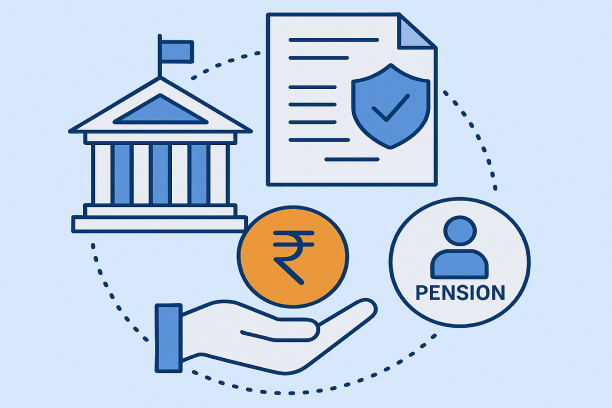Emerging BFSI Technology Trends in 2022?

Without a doubt, the Covid-19 pandemic has pushed and reshaped myriads of businesses and industries to hop on the digital transformation journey. Additionally, embracing technology is inevitable, especially for the BFSI (Banking, Financial services, and insurance) sector after the shocking market condition, regulatory challenges, hybrid work culture, and lockdowns globally. The next few years are going to be challenging and critical for businesses, we will witness which industries are able to back the ever-changing business environment.
So, to fulfill the pushing requirements of the tech-savvy customers the BFSI sector future will significantly depend upon digitization, backed by innovative and new-age technology including APIs, allowing customers seamless, fast, and secure transactions, and most importantly interoperability of the banking systems.

Here are some eye-opening statistics answering the next-gen banking ecosystem’s question for automation in the banking industry i.e. “adopting fintech is worth or not”!
-
Annually 500+ fintech companies are launched whilst they receive $50bn in funds
-
Amid the Covid-19 pandemic, the global fintech investment hit $44bn
-
By end of 2022, the fintech is projected to hit $310bn
The future is millennials and Gen-Z who are ready to spend extra bucks for greater service and convenience.
Few Trends That Are Here To Stay In 2022
NeoBanks
Also termed as “the next big thing in banking” – are bridging the gap between new-age digital customers and traditional banks. NeoBanks are banks with no physical branches instead have a digital presence. These financial institutions leverage AI and other innovative technologies to offer customized banking services to customers. Plus, NeoBanks are working on cutting-edge technologies and pushing traditional banks to revamp themselves to deliver at par customer services.
Artificial Intelligence and Machine Learning
There are plethoras of banking aspects such as traditional models, banking procedures, and legacy structures which are now being reshaped by AI. It has empowered the BFSI sector to meet its vital goals including amplified customer experience with virtual assistance, operational efficiency and optimization. Moreover, the new-age machine learning algorithms abet in processing data at a faster rate, credit fraud detection before happening, and reporting any credit fraud accurately to banks and customers in advance. On top of that, AI in banking and machine learning not only save time by extracting relevant data but also help in personalizing clients’ experiences, eventually helping BFSI in revenue growth.
According to the IDC report, after the retail sector, the financial services will be second to spend on AI closely 14% between 2021 and 2025 and the compound annual growth rate will be 24.5%. Hence, as we move further in 2022, the use of AI and machine learning will increase.
Big Data

The primary reason for big data analytics growth in the BFSI sector is the swift and voluminous increase in data through different modes of payment. So, big data empowers the BFSI sector to strategically manage unstructured information along with ensuring cyber security. Moreover, with instant predictive analysis and clarity, financial institutions can offer their valuable customers personalized investment options and product options. Not to mention, with big data not only relevant information is shared with the clients but also helps in protecting their sensitive information.
Blockchain
When it comes to throwing light on Blockchain, it has emerged as a successful technology ever since it first appeared. The platform underpins cryptocurrency and carries the potency to revolutionize the world economy.
Delving a bit deeper; Blockchain is fundamentally a distributed ledger that garners pivotal pieces of information or facts. The technology is principally employed to accumulate an immutable record of ownership and enable the transaction of the asset amongst distrusting parties.
Further, Blockchain technology in banking has become the talk of the town since its evolution as it delivers the following perks to the users:
- Transparency-One of the reasons for Blockchain technology getting famed is its powerful ability to deliver transparency. It empowers its huge set of users to have access in real-time by creating a public record of activities in the ecosystem.
- Decentralized- Blockchain technology boasts about being decentralized. In simpler words: it is not governed by any authority.
- Enhanced security- This impeccable feature ensures that any sort of alterations or modifications with the system is simply not possible.
RPA (Robotic Process Automation)
RPA copies and reproduces human actions to procure data in a faster manner. To add, this type of technology innovation is invaluable for the BFSI sector to maximize its operational efficiency, enhance customer experience, and amplify profitability. According to Capgemini, “RPA is able to generate 25%-50% cost saving via automation of data-rich mundane tasks, abetting to improved processes”. Also, RPA in the BFSI sector reduces errors by helping overburdened staff clear backlogs as well as eliminating repetitive tasks like data extraction, filling, and documentation. Besides this, RPA in banking has assorted functions that can streamline customer operations by shortening the call durations and automated response for faster resolution.
Voice And Chat Bots
Digital transformation and automation bring myriads of advantages to businesses and their customers which includes services from voice bots. Plus, bots can significantly increase customer services i.e. voice and chatbots can save up to 4 minutes in a query, delivering instant responses and enhancing customer services. Moreover, bots are seamlessly increasing customers’ banking experience – they offer instant answers which fasten the response time. Besides this, unlike traditional customer services bots are available 24*7 round the clock delivering exceptional customer experience and most importantly converting the potential visitor into leads.
Additionally, digital as well as traditional banks should opt for bots solutions to offer customized services and products to the customers. Along with helping agents to work on tasks that matter the most for the business.
Conclusion
Technology and data will play an imperative role in the BFSI sector irrespective of financial institution size and location. So, those who will embrace these new-age technology advancements will likely have more opportunities to compete in the market, grow their shares, and drive more profit.
Share this article
© 2026 Winsoft Technologies India Pvt. Ltd.



